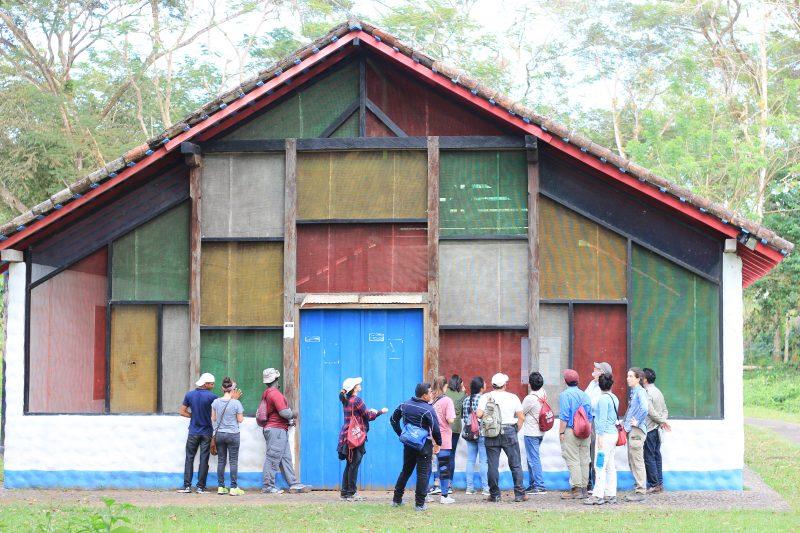As I boarded the plane for Managua, Nicaragua this spring break, I wasn’t sure what to expect from the upcoming trip. As part of a course called International Issues in Health and the Environment, I knew the trip would help us learn more about grassroots health initiatives in Nicaragua and how they apply to the concepts we learned about in class.
A country experiencing an increasingly dictatorial government and a controversial dam construction project, Nicaragua was the perfect place to study the effects of policy on people’s health. However, at the time I was more curious about what we would be doing to actually help the people in Nicaragua.
Sure, learning about health in a developing country is great, I thought, but what else are we going to do to help their situation? The idea of simply recording their problems to further our education, without helping, seemed selfish to me.
However, the more people we talked to during our 10-day trip, the more I realized that material support wasn’t something we were there to provide. It’s understandable to expect that we would be providing such support, given the narrative around humanitarianism that is so prevalent in today’s society.
The standard humanitarian model is one in which people from outside of a developing country visit the ‘third world’ in order to build a school, open a temporary health clinic or visit with orphans. These material actions are seen as honorable sacrifices of time and talent in today’s American society. Just look through your Facebook or Instagram feeds from this spring break, and you’re bound to find at least one post about someone volunteering in another country.
While there’s nothing wrong with wanting to help, it’s easy to fall into the sticky trap of the “white-savior industrial complex,” a term coined by writer Teju Cole. Cole explains that this mindset of helping foreign people in need becomes less about justice and more about “having a big emotional experience that validates privilege.”
To put it simply, short-term projects in developing countries by privileged humanitarian workers often ignore the complex structural issues that created the problems they are trying to fix. Under the white-savior industrial complex, humanitarianism becomes more about making the visitor feel like they are doing something good than about making sure the people being helped actually see lasting positive change in their lives.
This mindset distances us from the brutal forces of poverty that are less visible, such as labor exploitation by corporations that pay unlivable wages for terrible working conditions.
Sure, the school you may have helped build is a great resource for that community, but if you go home and buy a product from the corporation that impoverished them, you may be preventing the people you wanted to help from keeping that school open or paying their teachers.
Lasting humanitarian aid requires intense research and understanding of the socioeconomic situation before throwing your efforts at a problem that you might not be ready to solve. This problem has been pointed to as an issue with “voluntourism,” the act of people using their vacation to participate in in the type of projects I’ve discussed above.
Oftentimes, aid without research does more harm than good, such as when voluntourists visit and leave orphans so often that it causes them to develop an attachment disorder.
Rather than pointing to a random place on the southern half of the globe and going there to help with something, it can do much more good to simply understand the full range and depth of the problems people are dealing with in a specific developing country or region. Doing extensive research and finding out what people who live there say they need can help those of us in developed countries comprehend the broader causes behind the problems faced around the world.
As Teju Cole argues, “If we are going to interfere in the lives of others, a little due diligence is a minimum requirement.”
Whenever we asked the various social activists in Nicaragua what we could do to help them, they never once asked us to help build a building or run a health clinic for them. Every one of them simply asked us to go back home and tell everyone what we learned there, and to get more people to visit and truly understand the issues they are facing.
I, as a student at a well-established university, an opinion writer, a member of my student government and as a straight male, have much more ability and privilege here on campus to try to enact change that can help people than I would if I wandered into a developing country with a shovel and asked where they wanted me to build a well.
Rather than seeking validation for your privilege to make you feel like you’ve done something good, utilize your privilege in spheres where you have influence to see what can be improved. Use your ability to travel to understand the problems before attacking them, and in the process you will understand potential changes within your sphere that can create lasting progress.




